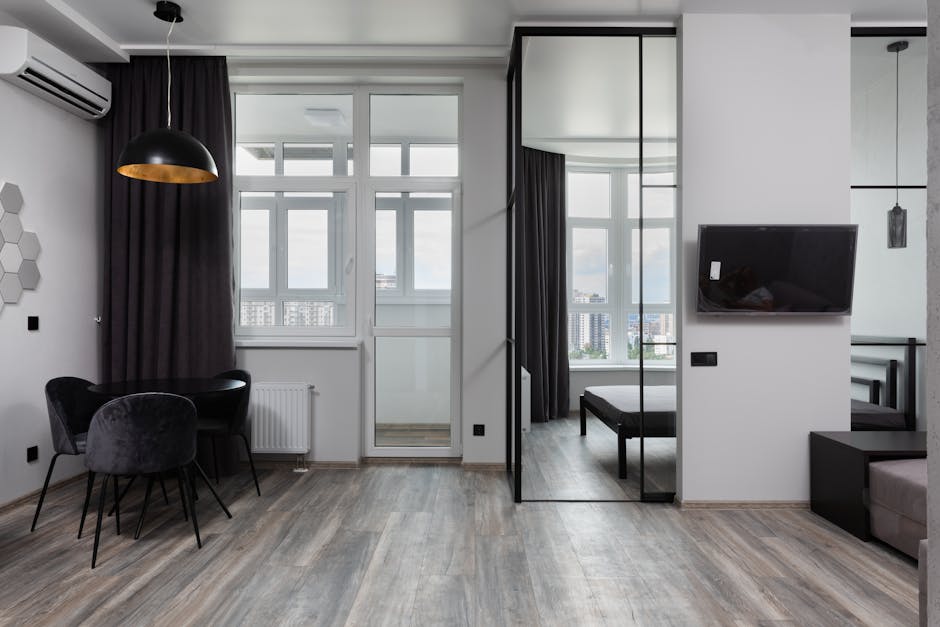Understanding the importance of energy-efficient HVAC systems
To grasp the significance of energy-efficient HVAC systems, one must first understand how crucial they are in modern homes. HVAC, which stands for Heating, Ventilation, and Air Conditioning, plays a vital role in maintaining comfort and indoor air quality. By upgrading to an energy-efficient system, homeowners can not only save on utility bills but also reduce their carbon footprint, contributing to a greener environment.
The benefits of energy-efficient HVAC systems go beyond cost savings. These systems operate more quietly, provide more consistent heating and cooling, and often come with advanced features such as programmable thermostats or smart technology integration. Understanding these advantages can help homeowners make informed decisions when considering an HVAC upgrade.
Another crucial aspect of energy-efficient HVAC systems is their environmental impact. By consuming less energy to heat or cool a home, these systems lower the demand for electricity, which in turn reduces greenhouse gas emissions. This positive environmental impact is an essential consideration for those looking to make their homes more sustainable.
Signs it’s time for an HVAC system replacement
Knowing when it’s time for an HVAC system replacement is key to avoiding unexpected breakdowns or high energy bills. One common sign is the age of the existing system. If your HVAC unit is over 10-15 years old, it may be approaching the end of its lifespan and could be less energy-efficient than newer models.
Unusual noises, inconsistent heating or cooling, frequent repairs, and rising energy costs are all indicators that your HVAC system might need replacing. Keeping an eye out for these signs can help you proactively decide when it’s time to invest in a new, more efficient system that will better serve your home’s needs.
Additionally, advancements in HVAC technology have led to more energy-efficient systems being available in the market. Upgrading to a newer model can not only improve your home’s comfort but also enhance energy savings, making it a wise investment in the long run.
By paying attention to these warning signs and staying proactive about your HVAC system’s maintenance and efficiency, you can ensure a comfortable and sustainable home environment for years to come.
Choosing the right HVAC system for your home’s specific needs
Selecting the right HVAC system for your home involves considering various factors such as the size of your property, climate conditions, and desired energy efficiency. Consulting with an HVAC professional can help you assess your specific needs and determine the most suitable system for your home.
Factors like the system’s efficiency ratings, proper sizing, and compatibility with your existing ductwork are essential to ensure optimal performance. By taking the time to research and understand your options, you can make an informed decision that meets both your comfort requirements and energy-saving goals.
Furthermore, exploring features like zoning systems, air filtration enhancements, and programmable thermostats can enhance the overall efficiency and comfort of your HVAC system. Customizing your system to align with your lifestyle and preferences can result in a more tailored and effective heating and cooling solution for your home.
By evaluating your home’s unique requirements and working closely with HVAC professionals, you can select a system that not only meets your current needs but also anticipates future changes, ensuring long-term satisfaction and energy efficiency.
Factors to consider when selecting an energy-efficient HVAC unit
When choosing an energy-efficient HVAC unit, several key factors should guide your decision-making process. The unit’s Seasonal Energy Efficiency Ratio (SEER) rating, Energy Star certification, and Variable Speed Technology are all essential considerations in determining the system’s energy efficiency.
Moreover, evaluating the unit’s Heating Seasonal Performance Factor (HSPF) for heating efficiency and its sound rating for noise levels can contribute to a more comfortable and quiet living environment. Understanding these specifications can assist you in selecting a unit that not only saves energy but also operates optimally for your home.
Additionally, considering the system’s maintenance requirements, warranty coverage, and available rebates or incentives can help you maximize the cost-effectiveness of your investment. By weighing these factors carefully, you can choose an energy-efficient HVAC unit that aligns with your budget and sustainability goals.
By prioritizing energy efficiency and exploring the full range of options available, homeowners can make informed decisions when selecting an HVAC unit that maximizes comfort, savings, and environmental benefits for their homes.
Maximizing energy efficiency through proper HVAC maintenance
Maintaining energy efficiency in your HVAC system involves more than just choosing the right unit; it requires regular upkeep and professional servicing. Scheduling annual inspections, replacing air filters regularly, and cleaning ductwork are essential practices to ensure the system operates efficiently.
Furthermore, calibrating thermostats, sealing duct leaks, and optimizing airflow can improve the overall performance and energy efficiency of your HVAC system. These simple maintenance tasks not only enhance comfort but also extend the lifespan of your unit, saving you money on repairs and replacements in the long term.
Engaging in preventive maintenance and addressing minor issues promptly can prevent major breakdowns and inefficiencies, preserving your system’s energy-saving capabilities. By staying proactive and following a consistent maintenance schedule, you can enjoy a well-functioning HVAC system that keeps your home comfortable and energy-efficient.
By adopting these maintenance practices and investing in professional servicing when needed, homeowners can prolong the life of their HVAC systems, maintain peak efficiency, and reap the full benefits of their energy-efficient investments.
